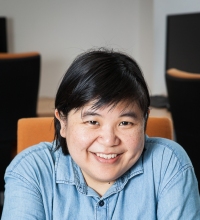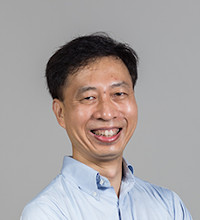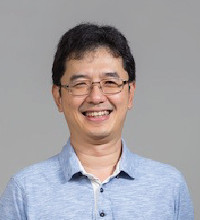Last year RSS introduced the RSS Test of Time Award given to highest impact papers published at RSS (and potentially journal versions thereof) from at least ten years ago. Impact may mean that it changed how we think about problems or about robotic design, that it brought fully new problems to the attention of the community, or that it pioneered new approach to robotic design or problem solving.
With this award, RSS generally wants to foster the discussion of the long term development of our field. The award is an opportunity to reflect on and discuss the past, which is essential to make progress in the future. The awardee’s keynote is therefore complemented with a Test of Time Panel session devoted to this important discussion.
It is our great pleasure to announce that the 2021 Test of Time Award goes to the paper:
For contributions to efficient point-based POMDP planning via the SARSOP algorithm.
RSS’21 will have a keynote talk by the awardees and a panel discussion of the work.
| Keynote Talk: |
|
Please join the Test of Time Award Panel on Friday, the 16th of July:
|
| Panel : |
|
Like other talks, the keynote talk for this award will be available for asynchronous viewing, and will be released well before the panel.

Hanna Kurniawati The Australian National University |
Biography:
Hanna Kurniawati is an Associate Professor with ANU and CS Futures Fellowship at the Research School of Computer Science, Australian National University (ANU). She received a PhD in Computer Science for work in Robot Motion Planning from the National University of Singapore under the supervision of David Hsu. Her research focuses on algorithms to enable robust decision theory to become practical software tools, with applications in robotics and the assurance of autonomous systems. Her work was nominated for the best paper award at IEEE Int. Conf. on Robotics and Automation (ICRA) 2015 and won a best paper award at the International Conference on Automated Planning and Scheduling (ICAPS) 2015. She received a gold award for ICT researcher of the year 2015. |
|---|---|

David Hsu National University of Singapore |
Biography:
David Hsu is a Provost's Chair Professor in the Department of Computer Science, National University of Singapore (NUS) and a member of NUS Graduate School for Integrative Sciences & Engineering. His research interests span robotics, AI, and computational structural biology. In recent years, he has been working on robot planning and learning under uncertainty and human-robot collaboration. He, together with colleagues and students, won the Humanitarian Robotics and Automation Technology Challenge Award at International Conference on Robotics & Automation (ICRA) 2015, the RoboCup Best Paper Award at International Conference on Intelligent Robots & Systems (IROS) 2015, and the Best Systems Paper Award at Robotics: Science & Systems (RSS), 2017. He has chaired or co-chaired several major international robotics conferences, including WAFR 2004 and 2010, RSS 2015, and ICRA 2016. |

Wee Sun Lee National University of Singapore |
Biography:
Wee Sun Lee is a Professor in the Computer Science Department of School of Computing at National University of Singapore. He obtained his PhD from the Department of Systems Engineering at the Australian National University in 1996. His research interests include machine learning and planning under uncertainty. Among various awards, his work obtained first Place, POMDP track, ICAPS International Probabilistic Planning Competition (IPPC) in 2011 and again in 2014. |